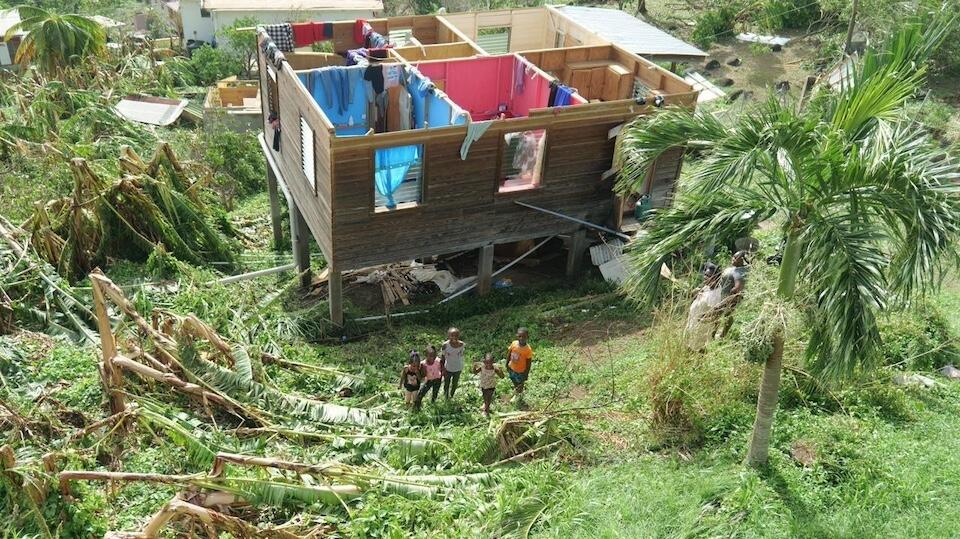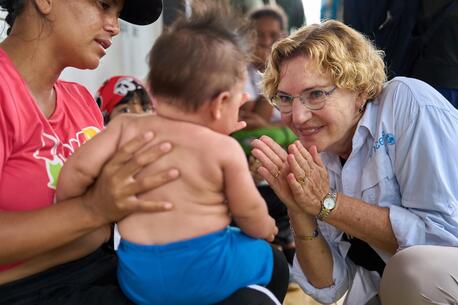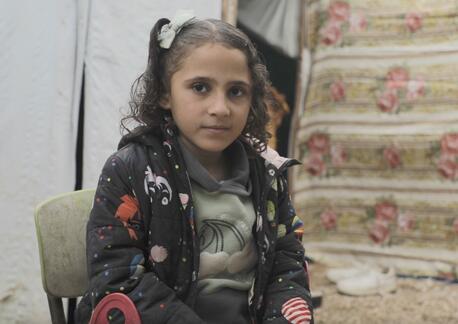As Hurricane Beryl Hits Caribbean, UNICEF Is There
UNICEF and partners have pre-positioned lifesaving supplies and stand ready to provide emergency services to children and families in affected areas of several countries across the region.
3 million children at risk from first hurricane of 2024 season
Hurricane Beryl — the season's first, and the first-ever to begin brewing in the month of June — made landfall in the southeast Caribbean on Monday, ripping through Grenada, Saint Vincent and the Grenadines, Barbados and Saint Lucia.
The high winds, storm surges and heavy rain caused widespread damage, including to homes and schools. UNICEF estimates that 3 million children are at risk from the storm's impacts, including flash floods.
"All efforts must be made to prevent loss of life and keep children safe," said Karin Hulshof, UNICEF's Regional Director for Latin America and the Caribbean (LACRO). "Our teams across the Caribbean are ready to support national efforts in providing humanitarian assistance to families in need."
UNICEF and partners have pre-positioned lifesaving supplies in several countries in the Caribbean Basin, including medical kits, educational kits, essential water supplies, sanitation and hygiene materials such as water tanks and water purification tablets, high-performance tents and other equipment.

UNICEF has been supporting emergency preparedness efforts throughout the region on an ongoing basis as part of its commitment to building resilience and reducing disaster risks. Extreme weather events have become more frequent and more intense in the region and all around the world as a result of climate change.
"Investing in national capacities to prepare for and respond to climate-related emergencies and provide essential services for children is critical," Hulshof noted.
With support from the UNICEF USA Mercury Fund, UNICEF has already started working to enhance emergency preparedness of UNICEF Country Offices and partners in the field by stockpiling supplies, investing in immediate child-centered response capacities and improving the shock-responsiveness of systems.
LACRO is the second most disaster-prone region in the world. Some 1.9 million people, including half a million children and adolescents, are affected by disasters each year. Of these, nearly 1.5 million people are affected by hydro-meteorological events, such as hurricanes, and 165,000 by geological events like earthquakes, which can result in thousands of deaths and injuries.
Small Island and Development States in the Caribbean are particularly vulnerable to climate shocks due to their small size and extreme exposure to natural hazards.
HOW TO HELP
There are many ways to make a difference
War, famine, poverty, natural disasters — threats to the world's children keep coming. But UNICEF won't stop working to keep children healthy and safe.
UNICEF works in over 190 countries and territories — more places than any other children's organization. UNICEF has the world's largest humanitarian warehouse and, when disaster strikes, can get supplies almost anywhere within 72 hours. Constantly innovating, always advocating for a better world for children, UNICEF works to ensure that every child can grow up healthy, educated, protected and respected.
Would you like to help give all children the opportunity to reach their full potential? There are many ways to get involved.





